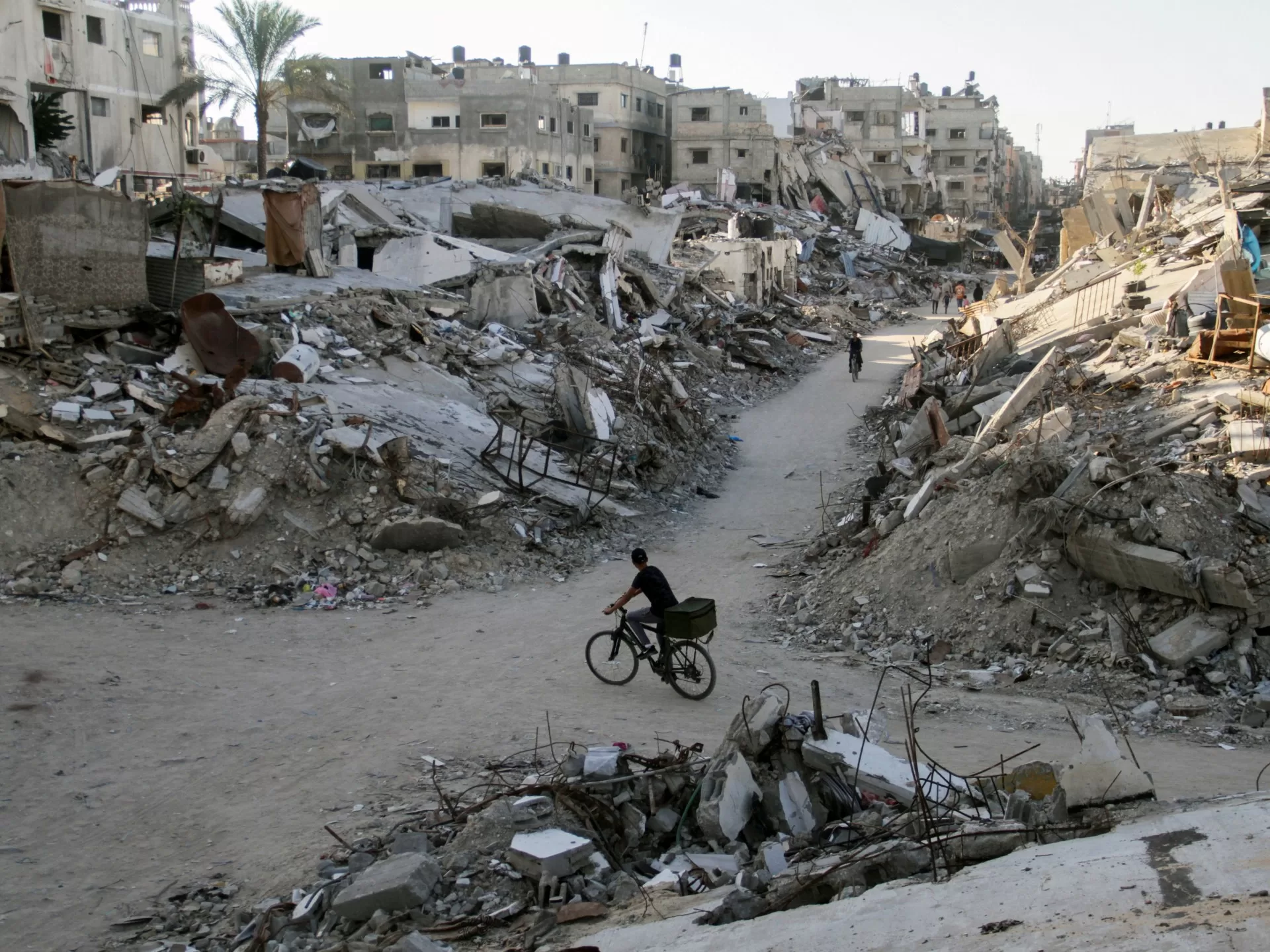Palestinian health officials have called for a humanitarian corridor to three hospitals in northern Gaza that have come close to collapse after Israeli troops have cut off the area during almost two weeks of a renewed ground assault.
Doctors at the Kamal Adwan, al-Awda and Indonesian hospitals have refused to leave their patients despite evacuation orders issued by the Israeli military at the start of the offensive into the Jabalia area of northern Gaza 12 days ago.
“We are calling on the international community, the Red Cross and the World Health Organization, to play their humanitarian role by opening up a corridor towards our healthcare system and allow the entry of fuel, medical, delegations, supplies and food,” said Hussam Abu Safiya, director of the Kamal Adwan Hospital, on Wednesday.
“We are talking about more than 300 medical staff working at Kamal Adwan Hospital, and we can’t provide even a single meal for them to be able to offer medical services safely.”
In addition to Jabalia, Israel’s ground assault in ravaged northern Gaza has also targeted Beit Hanoon and Beit Lahiya. The area has been repeatedly bombarded and invaded by Israeli ground troops since Israel launched its assault on Gaza last October.
Since the latest incursion, it has been completely sealed off, according to Palestinian Civil Defence spokesman Mahmoud Basal.
The UN estimates that some 400,000 people are trapped in northern Gaza and have been unable to leave due to intense bombardment, as well as the presence of Israeli snipers and ground troops.
For 12 days, no food has been delivered to the area, Basal said.
“They are not only trapped, but also lacking food, drink, and medicine,” he said, adding that scarce medical supplies are also dwindling.
The Gaza Ministry of Health said the continuing Israeli offensive has killed around 350 Palestinians in Jabalia and nearby areas.
In Gaza City on Wednesday, an Israeli air strike on a house killed 13 people, medics said. In its daily update, the Gaza Ministry of Health said Israeli military strikes had killed at least 65 Palestinians across the enclave in the past 24 hours.
Munir al-Bursh, the director-general of Gaza’s Ministry of Health, said more than half of the dead are women and children and many bodies remain in the streets and under the rubble, with rescue teams unable to reach them because of Israeli strikes.
“Entire families have disappeared,” said al-Bursh.
‘People are starving’
The dire humanitarian situation has prompted worldwide alarm, with the United States issuing one of its strongest warnings to Israel that it must improve the situation or face potential restrictions on military aid.
“A policy of starvation in northern Gaza would be horrific and unacceptable and would have implications under international law and US law,” said Linda Thomas-Greenfield, the US ambassador to the United Nations, on Wednesday during a UN Security Council meeting.
The US has previously vetoed multiple resolutions that called for a ceasefire in Israel’s war on Gaza.
France and China also called for an end to the war and immediate humanitarian relief in Gaza’s north.
The Israeli military meanwhile said it has killed more than 50 Palestinian fighters in air strikes and close combat in recent days. It has told people to evacuate to what it claimed were safer areas in the south, fuelling fears among Palestinians that the drive is aimed at clearing them from northern Gaza permanently.
The Israeli military denies restricting aid supplies, saying that since October 1, more than 9,000 tons of humanitarian aid including food, water, gas, shelter equipment, and medical supplies have entered Gaza through various crossings.
It said some of that aid was transferred directly into northern Gaza. Gaza’s Government Media Office refuted the claim, saying Israel’s “lies” about allowing trucks in are completely false.
“Nothing entered northern Gaza. People in northern Gaza are starving,” said Hadeel Obeid, a supervisor nurse at the Indonesian Hospital, where 28 patients were being treated.
“Our administrative manager provides just one meal for all persons including doctors, nurses, patients, and their companions. It’s a small amount, not enough for an adult person,” she told Reuters news agency via a messaging app.
Like Basal, she said medical supplies were running out due to the daily demands of caring for the wounded.
Al Jazeera’s Tareq Abu Azzoum, reporting from Deir el-Balah, said at least 50 humanitarian aid trucks from the Jordanian capital, Amman, had arrived in Gaza City, but they “did not reach besieged areas, including Jabalia, Beit Hanoon and Beit Lahiya”.
He said Israeli strikes have also continued across Gaza, including the central areas.
Polio vaccinations
Meanwhile, the United Nations Relief and Works Agency for Palestine Refugees (UNRWA) said that on day two of a polio vaccination campaign in Gaza, more than 64,000 children had received the drops and 51,000 vitamin A doses.
The World Health Organization (WHO) urged Israel to ensure the necessary conditions to finish the job of vaccinating Gaza’s children against polio,
“We call for the humanitarian pauses to continue to be respected. We call for a ceasefire and peace,” WHO director-general Tedros Adhanom Ghebreyesus said on X.
Rachael Cummings, a health specialist with Save the Children, said the situation for children across the coastal enclave is “absolutely dire”.
“People are in survival mode. … People are looking for food, looking for water. There is not adequate sanitation, and hygiene practices are decimated,” Cummings told Al Jazeera.
Israel’s war on Gaza has killed at least 42,400 people, mosly women and children, since October 2023, according to the Palestinian Health Ministry.
